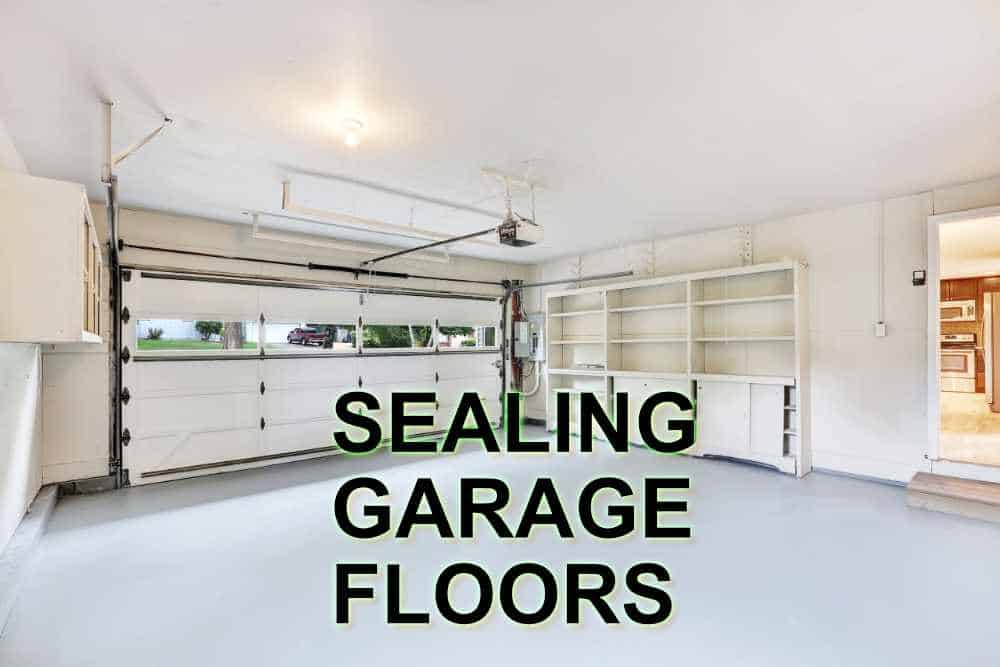In this article, we will be discussing the pros and cons of sealing garage floors.
We’ll show you the situations where sealing garage floors makes the most sense.
As well as looking at the various types of sealers available on the market today and talk about when it makes the most sense to use a particular sealer.
Finally, we will discuss how colder climates and warmer climates affect the sealing of garage doors and what you should do.
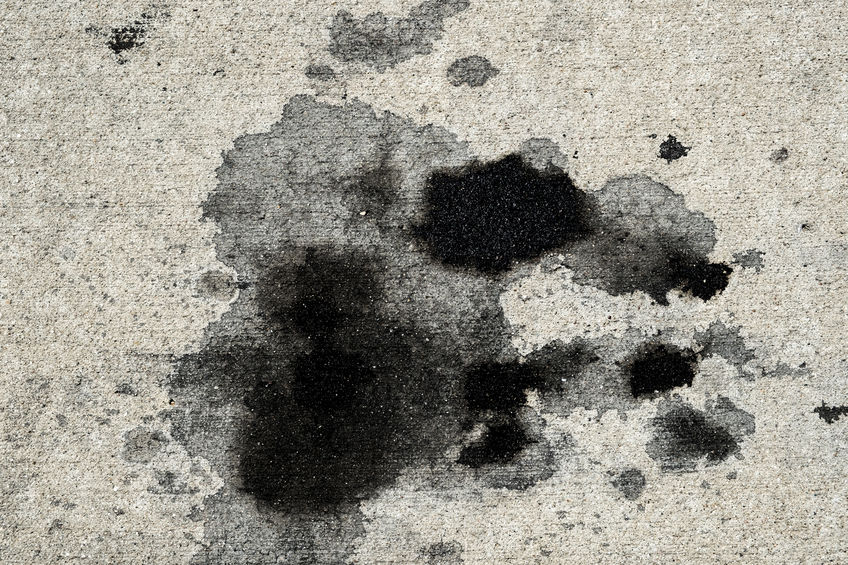
Pro: Oil Stains can be Avoided
If you’re like me, you have a few oil stains on your garage floor. This just goes with the territory when owning a garage.
But it doesn’t have to be the case, adding a layer of protection like a sealer can stop those oil stains from being absorbed by the concrete slab.
You can simply wash away any oil or chemicals before they ingress into the floor.

Pro: It looks Nice!
Of course this depends on the type of sealer you use (something we’ll explore later in the article).
But if you go for an epoxy finish or a garage floor paint for instance, then it can really bring up the look of your garage and add a touch of glass to what is otherwise a pretty dull looking room.
“Looking nice” is pretty subjective and what looks good for one person isn’t going to be true for another.
But stick around and we’ll show you a few options for sealing your garage floor at several different budgets.
Pro: It Repels Moisture
Adding a sealer is like forming a barrier from the concrete slab and the outside elements.
In the case of moisture, concrete is a pourous material and absorbs moisture.
Adding a sealer can help prevent this and as result increase the lifespan of the slab before it requires maintenance.
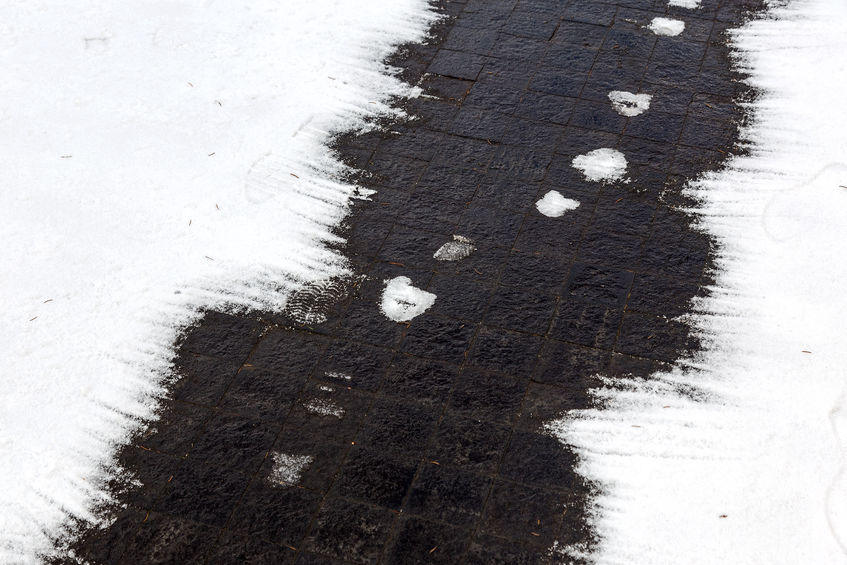
Pro: It Protects against Frost
Similar to moisture, adding a sealed layer to your concrete garage floor can prevent water ingress and then if the temperature drops…you guessed it, frost.
We don’t want concrete floors to get wet and then subsequently freeze because water expands when its frozen and can pop the surface finish off the concrete.
This results in rough patches and decrease the quality of the surface, in extreme cases it could become a trip hazard and require maintenance.
So if you live in a seasonally cold environment then sealing your garage floor could be a good idea!
Later on we’ll explore why it also makes sense if you live in hot climate too, so keep reading.
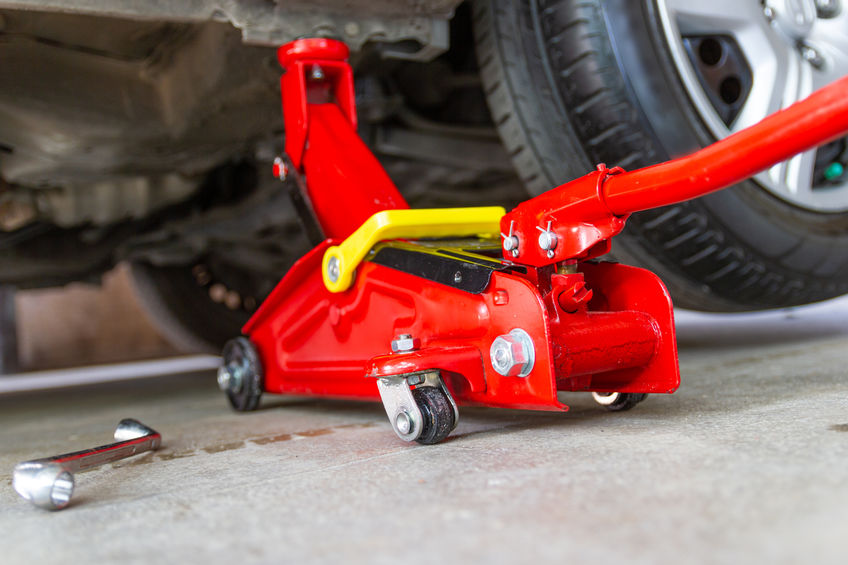
Pro: Increases durability
This goes hand in hand with some of the more specific examples we’ve shown. But it should go without saying that if you add a sealer then it acts like a layer of protection in general.
Just think about the regular ware and tear you might expect to see on you garage floor:
- tools dropping from workbenches
- heavy objects hitting the garage floor
- cars parking in the garage
- the list goes on!!
That sealed layer can act as a buffer and keep your garage floor in good condition for longer.
Con: Sealers Require Maintenance
So it’s not all roses when it comes to sealing your garage floor.
One of the obvious drawbacks is that once its down, well you guessed it. You have to maintain it.
Otherwise it’ll wear away just like any other thing and all of the benefits we just discussed could be diminished.
So keep this in mind, as a general rule, the more expensive the garage floor sealer you use, the less maintenance you have to do.
And conversely, the cheaper the coating you use, the more maintenance you’ll have to do to keep it looking fresh.
Con: It Can Be Expensive
There’s a wide range of products that can be used to seal a garage floor. With the more popular of the expensive options being Epoxy.
It’s expensive, but man o man does it look good!
So I guess this both a pro and a con in that sense. You’re getting a great finish and a durable surface that will last you years.
But it ain’t gonna be cheap.
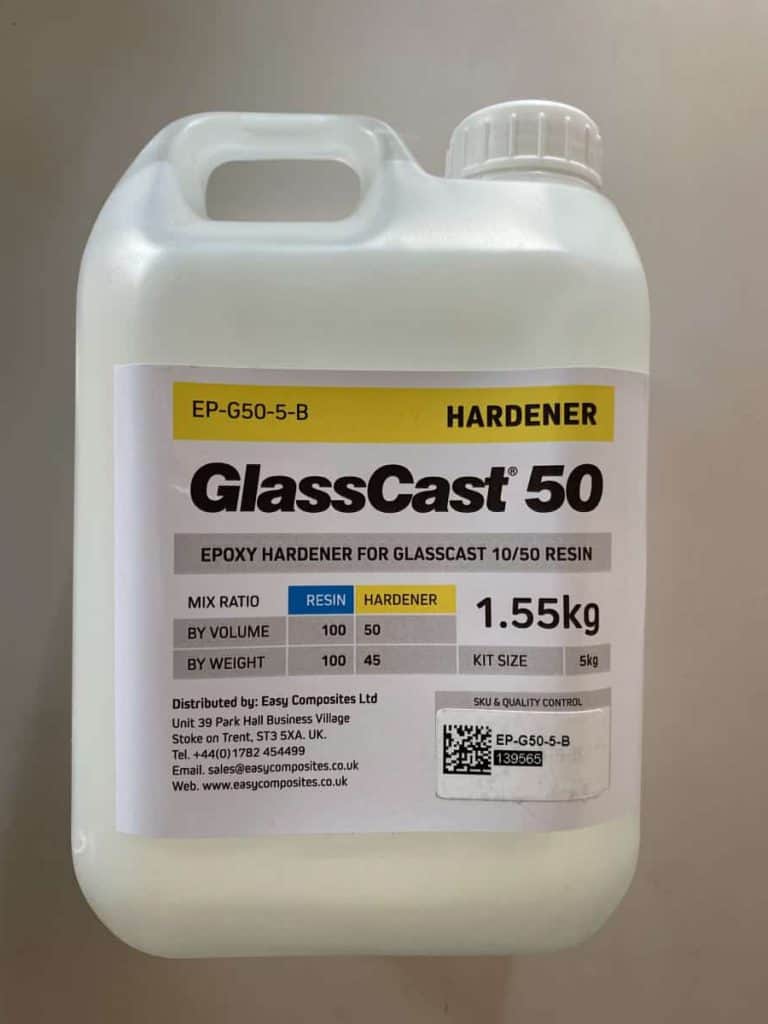
Con: It Might Take a While To Seal
This point looks at the installation time itself for sealing your garage floor.
It can range, but expect your garage to be out of action for at least a few days. Maybe even more!
With paint, you’re going to want to let it dry over night and then likely add an extra layer or two.
With epoxy, you’re going to want to make sure it’s hardened and that can take a while depending on the thickness of the slab.
And lastly, you’re going to have to move all your stuff! Who wants that right. So keep these three cons in mind when deciding on if sealing your garage floor is right for you.
What Types of Garage Floor Sealers Are There?
Alright so we’ve covered the pros and cons of sealing your garage floor.
Now lets look at some of the options you have available too you.
The Topical Garage Floor Sealers
These sealers adhere to the surface of the concrete, also known as film forming sealers or floor coatings.
Topical garage floor sealers form a protective layer adhering to the surface, It can be colored to change the looks of the concrete, and they are also available in clear variants.
Using clear sealers enhances the look of bare concrete and brings out the color of stained concrete.
If you want to preserve the bare concrete without looking like you exerted too much effort, use topical garage floor sealers. It will highlight the natural beauty of your concrete and make it longer lasting.
The Acrylic Garage Concrete Sealers
Acrylic garage concrete sealers protect the floor from water and chloride intrusion and also give moderate protection against oil stains, vehicle fluids, hot tire pick up, and road salt.
Most are clear and form a thin protective layer on bare concrete, and these are easy to apply as well.
Acrylic garage concrete sealers can also enhance the look of the floor by giving it a wet, glossy look. Matte finishes are also available as well.
Using an acrylic sealer with UV protection is the best for garages with exposed parts to the sunlight.
Chlorinated Rubber/Alkyd Resin
A combination of rubber and resin to form a hard non slip surface.
These products tend to be non transparent and are relatively easy to apply.
A single drum will likely cover a single car garage surface area but you’ll obviously need a few drums for a larger garages.
You’re looking around the $200 per drum in terms of pricing so keep that in mind.
I like this option because it’s a happy medium between full out epoxy coating your garage and just putting some paint down. Plus the price is somewhere in between as well.
So this is my recommendation if you are thinking of sealing your garage floor then Chlorinated Rubber/Alkyd Resin is what I would use.
Climates and Sealing Garage Doors
Helpful in The Colder Climates
Colder temperatures contribute to the fast aging of the concrete especially in garages.
They are the most exposed part of the house so they require extra care.
It is extremely helpful to seal the garage floors because it can keep the normal temperature needed for your car to run smoothly since it would be easier to move with warmer floors.
It can also be helpful in protecting against condensation in the form of moisture or water droplets.
Ideal For Warmer Climates
Garage floors sweat in summer or in warmer climates, which can be dangerous at times and can affect the longevity of your garage floor.
It can be a real nuisance which can create a slippery surface and it can make your garage floor damp.
Wet garage floors can suffer from efflorescence as a result. It is very important to seal your garage floors especially if you are in warmer climates to prevent unnecessary condensation that can bring moisture.
Seal Your Garage Floors For Either Climate
Weather can still affect your garage floor in so many ways possible. You still need to protect your garage floor to avoid any nuisances in the future.
Both warm and cool climates can damage your garage floor in the long run, so protect your concrete floor with garage floor sealers to make it last even longer.
It is better to seal your garage floors either way, rather than just choosing it to lay bare and suffer the consequences once the damages are seen from the surface.
Conclusion
Sealing your garage floors can benefit you for a number of reasons.
It can primarily protect your garage floors from both physical and chemical changes that can contribute to the damage on your floors.
It also adds an aesthetic boost to it since it can help you enhance the natural color, stain, and overall look of your garage floors.
Weather is a huge factor on why you need to seal your garage floors because rain or shine, hot or cold, can affect you in so many ways and causes.
It is definitely better to be safe and start sealing your garage floors rather than be sorry and spend tons of money in overhauling your entire concrete floor.
Alright guys, that’s it for this article, if you are interesting in reading more about garages, we have lots of cool articles related to sealing such as:
Can I Paint My Garage Door ?! – The Complete Answer
How to clean garage epoxy floor – The Simple Way With GREAT results
Garage Door Insulation Foam vs Fiberglass – The Definitive Answer

